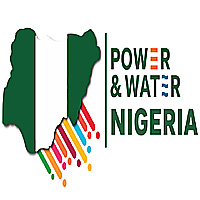Nigeria has the seventh-largest population in the world, and it is growing quickly. As a result, the country’s water and power supplies must rise to meet the country’s expanding needs. The largest barrier to the nation’s development has been the absence of power, with slightly over 51% of the population having occasional access to it. While 71% of people have access to safe water, the water sector faces comparable difficulties. While climate change is undoubtedly a contributing factor, research indicates that the infrastructure supporting water supply needs to be upgraded.
The Power & Water Nigeria Exhibition, which has been bringing together the water and power sectors since 2022, provides access to technical discussions and on-the-spot assessments of the opportunities in the power, distribution, renewable energy, and water and utility sectors for global stakeholders. Every year, the show provides a platform for buyers to investigate and contrast cutting-edge technologies from top domestic and international vendors.
Power & Water Nigeria in Numbers
- 1,300+ SQM. EXHIBITION SPACE
- 5,000+ VISITORS
- 100+ EXHIBITING BUSINESSES
- 70+ ADVISORY MEMBERS & SPEAKERS
- 20+ COUNTRIES REPRESENTED
Exhibition Scope
Power Generation
With at least 60 million Nigerians owning generator sets and over N3.5 trillion being spent annually on fuel, Nigeria is the world’s largest market for generators and spare parts. The necessity of generators for both public and private life in Nigeria becomes evident when one realizes that the country has the lowest per capita electricity consumption in Africa and that 82.1 percent of its 28.9 million households lack access to the national grid.
PnW is expected to be the largest platform for power generation solutions serving Nigeria and West Africa, bringing together major assemblers and packagers with a target market focused on purchasing authentic spare parts for the largest generator market, in addition to the top brand names on display.
Water Technology
“While data show a significant decline in the proportion of urban households with access to piped water to premises, which dropped from 32 percent in 1990 to three percent in 2015,” states ESI Africa, “the percentage of the urban population with access to basic water has increased.” Concurrently, the proportion of people living in cities increased from 30% in 1990 to 48% in 2015, and it is anticipated that this trend will persist in the upcoming decades. A number of factors contribute to the persistence of access gaps, such as the growing demand for services and the fast pace of urbanization; institutional and governance constraints; gender inequality; weather and water-related risks; and ineffective and inefficient service delivery.
PnW helps the public and private sectors form business alliances in order to promote sustainability and innovation in water projects throughout the region.
Solar & Renewable Energy
Nigeria has had difficulty implementing the best renewable energy solutions due to its current infrastructure, but significant progress has been made by increasing promotion and standardizing this into the private sector. Because of its numerous efforts to boost energy security and generate electricity in the continent’s most populous nation, Nigeria has emerged as one of Africa’s most appealing solar energy markets.
Through its network, PnW will offer a framework for understanding and accessing the expanding solar/energy storage and management sector.
Energy Management & Storage
Nigeria’s battery market is predicted to grow rapidly in the upcoming years as the nation turns its attention to electric vehicles. Growing telecommunication networks, an increase in vehicle imports, and a number of government incentives for clean energy sources will also drive up demand for industrial batteries. Nigeria’s industrial batteries market is expected to grow between 2020 and 2026, according to 6Wresearch.
Through its network, PnW will offer a framework for understanding and accessing the expanding solar/energy storage and management sector.
Transmission & Distribution
Nigeria’s power system suffers from a huge imbalance between what it generates and the demand from users. Though it has the capacity to generate 8,000MW of operational power, only 4,500MW reliably reaches consumers. Brownouts and blackouts are a regular feature of life in Nigeria, constraining the country’s economic development.
PnW offers access to innovations & solutions, not only ensuring a reliable power supply but also securing additional revenue for investments and building local content and capacity.

